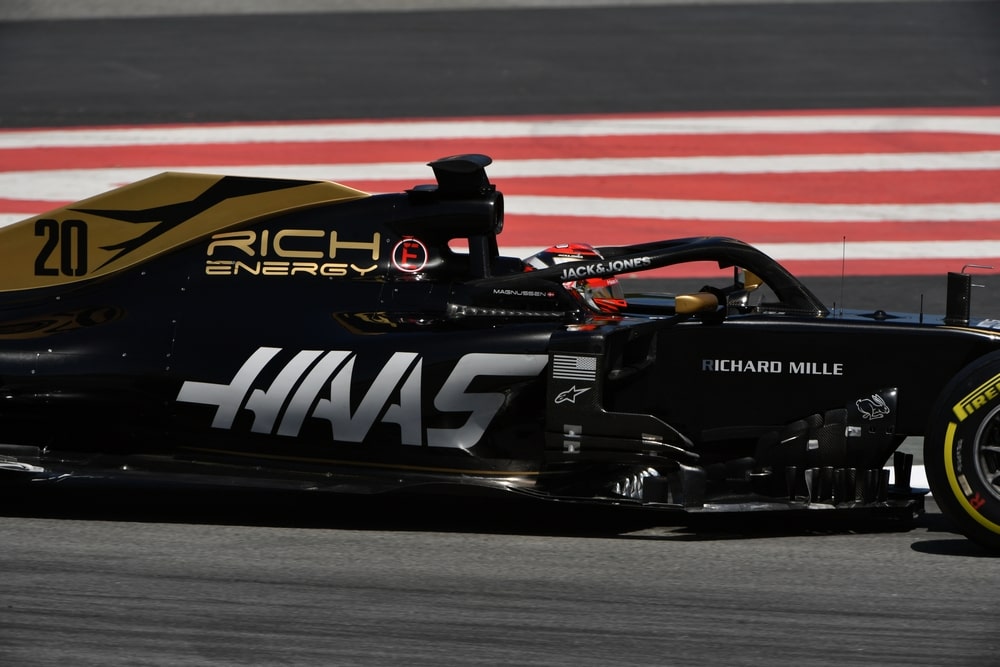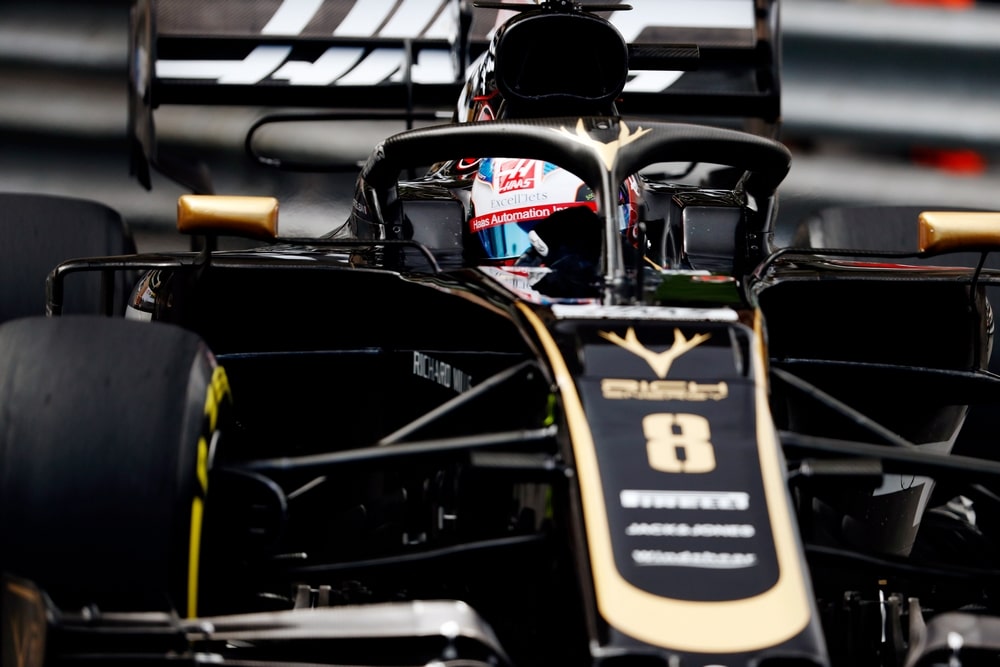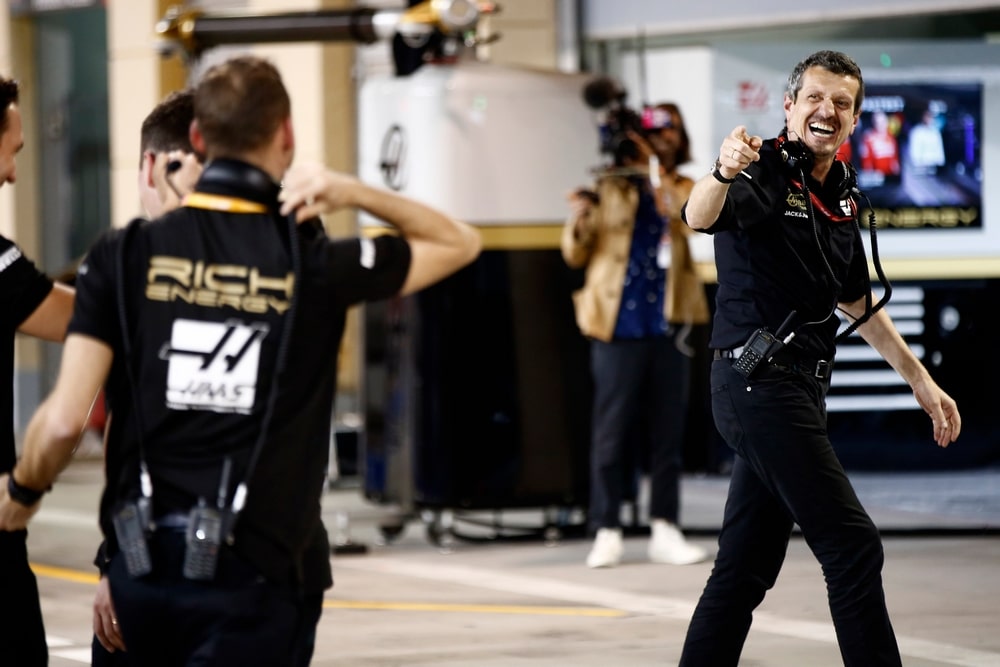
If you’ve been following the news surrounding F1 for the past few months, you’ve inevitably heard about dramas with Rich Energy, the Haas F1 Team’s title sponsor. But what’s actually going on? This is an ongoing story, but here’s what we know so far.
Rich Energy is a British energy drink manufacturer founded in 2015. They first became involved in Formula One at the end of 2018, becoming the Haas F1 Team’s title sponsor. They are to thank for Haas’ new 2019 livery, which looks similar to the John Player Special livery that Lotus run in the ’70s. But Haas was not Rich Energy’s first attempt to enter Formula One.
Rich Energy had originally approached Williams, who had just lost their title sponsorship deal with Martini. However, the team rejected the deal. Rich Energy CEO William Storey later lashed out against the team, saying that they were “living off past glories and didn’t run a very good business”.
The company also attempted to acquire the Force India team when they entered administration in 2018. Although the £100m deal was reportedly finalized, it fell through when the team backed out.
With no options, Rich Energy partnered with the Haas F1 Team with the goal of beating Red Bull, owned by the popular energy drink company.

However, Rich Energy landed themselves in hot water when they were sued by Whyte Bikes, a British bicycle manufacturer founded in 1999. The company sought damages for trademark infringement since the two companies have nearly identical logos. The lawsuit prompted Haas to remove the Rich Energy logo from their car from the Canadian Grand Prix onward after Rich Energy lost the legal case.
Judge Melissa Clarke slammed Rich Energy, accusing the company’s CEO of attempting to “manufacture of documents during the course of litigation” and saying that he was not a “credible or reliable witness”. She also awarded legal costs to Whyte Bikes in the amount of £35,416 to be paid by Rich Energy. However, the deadline to pay these fees has passed and Rich Energy has yet to pay up.
In the aftermath of the legal loss, an announcement was posted Wednesday on the Rich Energy Twitter account claiming that the company has terminated their sponsorship deal with Haas, citing poor performance. The Tweet slammed Haas for not outperforming Red Bull and running behind Williams at the Austrian Grand Prix. The Tweet also lashed out against the sport’s “politics and PC attitude”.
The companies shareholders, who reportedly own the majority of the company, denied the announcement. Their statement claimed that the Tweet was “the rogue actions of one individual have caused great embarrassment” and that they are in “the process of legally removing the individual from all executive responsibilities”.

Although not referenced by name in the shareholder statement, the Tweet appears to have originated from the company CEO without consent from the shareholders. He later fought back via the company’s Twitter account, saying “The ludicrous statement by minority shareholders cosy with Red Bull and Whyte Bikes is risible” and insisting that he is in full control of the company and has the support of the key shareholders.
Another Tweet by the company contains what appears to be a letter from The Ebury Partnership LLC – the company representing Haas in partnership deals – claiming that Haas will be open to negotiations with Rich Energy. However, they want to see that William Storey is removed from the company and that a new CEO has been appointed. The letter also expressed concern over the outstanding legal fees and the financial viability of the company.
This is not the first time that people have been concerned about Rich Energy’s viability. In fact, many suspect the company is illegitimate based on shady financial documents.
A financial document published in the UK government’s Companies House filing system shows that as of fall 2017 the company only has £581 in the bank. The company also reports £1.7m of fixed assets including £17,676 tangible items (inventory, machinery, property, etc) and £1.69m of intangible assets (patents, licenses, software, etc). Rich Energy also reports another nearly £1m of assets from “debtors”.
According to the document, the company has more than £1.8m of debt. Roughly £400,000 of the debt is classified as trade creditor debt, presumably for unpaid supplies. However, the rest of the debt is simply labelled “other creditors”.

The company’s CEO defends this document, saying that Rich Energy is an international company and that UK financial documents only represent part of the company. He also claimed that the company now has tens of millions of pounds in the bank. Guenther Steiner also defended the company earlier this year, insisting that the team did its due diligence before signing the sponsorship deal.
Aside from the UK, the company also has links to Croatia (where their trademark is filed) and Austria (where their cans are filled). The product has also launched in the US. However, finding it in a retail location is nearly impossible, although cases of the drink are available for purchase online. Storey defends this, saying that it’s down to the company’s unconventional non-retail distribution plan.
However, if the company is registered in the UK, international funds should still appear in the company’s UK financial statements. But they do not.
At this point in time, the future of Rich Energy is unclear. It’s not even entirely clear the company is legitimate. The infringing logo still remains on the company’s website and there is an ongoing power struggle atop the companies management, as the shareholders seek to overthrow Williams Storey.
As for the Haas F1 Team, it’s business as usual. The team continues to run the Rich Energy branding on their livery, although it does not include their logo.